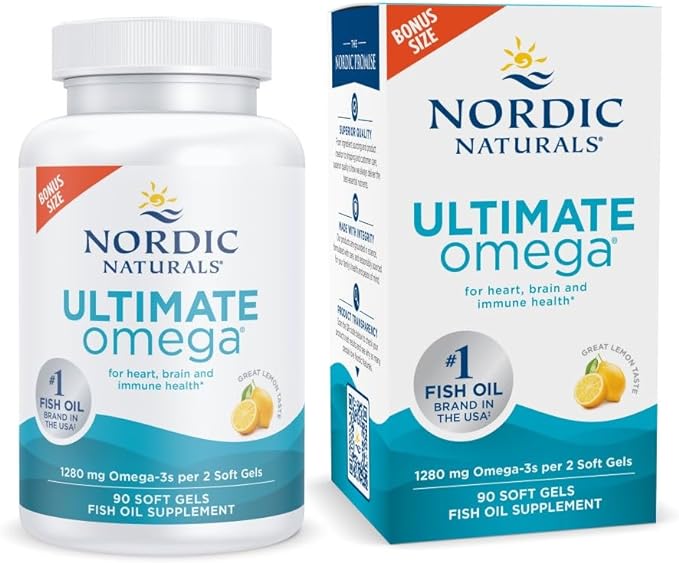Omega-3 Fish Oil: Essential Benefits for Your Health
Introduction
Omega-3 fish oil has garnered significant attention in the health and wellness community due to its numerous benefits. These essential fatty acids are crucial for maintaining various bodily functions and overall health. This in-depth article explores the numerous benefits of omega-3 fish oil and offers expert insights and scientific support.
What are Omega-3 Fatty Acids?
Types of Omega-3 Fatty Acids
Omega-3 fatty acids are polyunsaturated fats, primarily categorized into three types:
- Eicosapentaenoic Acid (EPA): Found mainly in fish and seafood, EPA is known for its anti-inflammatory properties and cardiovascular benefits.
- Docosahexaenoic Acid (DHA): Also present in fish and seafood, DHA is vital for brain health, vision, and cell membrane integrity.
- Alpha-Linolenic Acid (ALA): Found in plant oils such as flaxseed, chia seeds, and walnuts, ALA is a precursor to EPA and DHA but is less efficiently converted by the human body.
Sources of Omega-3 Fatty Acids
Omega-3s can be obtained from:
- Fish and Seafood: Salmon, mackerel, sardines, and anchovies are rich sources.
- Plant Oils: Flaxseed oil, chia seeds, and hemp seeds are excellent for vegetarians and vegans.
- Supplements: Fish oil capsules, krill oil, and algae oil supplements provide concentrated doses of EPA and DHA.
Health Benefits of Omega-3 Fish Oil
Cardiovascular Health
Reducing Triglycerides and Blood Pressure
Omega-3 fish oil is well-known for its cardiovascular benefits. It helps lower triglyceride levels, reducing the risk of heart disease. Studies have shown that EPA and DHA can also lower blood pressure, particularly in individuals with hypertension.
Anti-inflammatory Effects
Chronic inflammation is a risk factor for many diseases, including heart disease. Omega-3 fatty acids possess potent anti-inflammatory properties, reducing inflammation markers such as C-reactive protein (CRP).
Brain Health and Cognitive Function
Enhancing Memory and Cognitive Performance
DHA, a primary component of brain tissue, is essential for maintaining cognitive function. Adequate DHA intake is linked to improved memory, faster learning, and better mental performance.
Reducing the Risk of Neurodegenerative Diseases
Regular consumption of omega-3 fish oil may reduce the risk of neurodegenerative diseases like Alzheimer’s and Parkinson’s. The anti-inflammatory and neuroprotective properties of DHA are crucial for brain health.
Eye Health
Prevention of Age-Related Macular Degeneration
DHA is a major structural component of the retina. Adequate intake of omega-3s helps protect against age-related macular degeneration (AMD), a leading cause of vision loss in older adults.
Alleviating Dry Eye Syndrome
Omega-3 fish oil can also alleviate symptoms of dry eye syndrome by improving tear production and reducing inflammation in the eye.
Mental Health
Managing Depression and Anxiety
Omega-3 fatty acids, particularly EPA, have been shown to reduce symptoms of depression and anxiety. They modulate neurotransmitter pathways and reduce inflammation, which can contribute to mood disorders.
Supporting Bipolar Disorder and Schizophrenia
Research suggests that omega-3 supplementation can be beneficial in managing symptoms of bipolar disorder and schizophrenia, likely due to its effects on brain function and inflammation.
Joint and Bone Health
Reducing Symptoms of Arthritis
The anti-inflammatory properties of omega-3 fish oil are beneficial for individuals with rheumatoid arthritis. Supplementation can reduce joint pain and stiffness, improving mobility and quality of life.
Improving Bone Density
Omega-3s can enhance bone health by increasing calcium absorption and reducing the risk of osteoporosis, particularly in postmenopausal women.
Skin Health
Reducing Acne and Other Skin Conditions
Omega-3 fish oil can improve skin health by reducing inflammation, thereby alleviating acne, eczema, and psoriasis symptoms. It also helps maintain skin hydration and elasticity.
Promoting Wound Healing
EPA and DHA support the healing process of wounds by modulating inflammation and promoting cell regeneration.
Pregnancy and Infant Development
Supporting Fetal Brain and Eye Development
DHA is critical for fetal brain and eye development. Pregnant women are advised to ensure adequate intake of omega-3s to support their baby’s growth and development.
Reducing the Risk of Preterm Birth
Omega-3 supplementation during pregnancy is associated with a lower risk of preterm birth and complications such as preeclampsia.
Immune System Support
Enhancing Immune Function
Omega-3 fatty acids support the immune system by modulating inflammatory responses and enhancing the function of immune cells. This can help the body fight infections and diseases more effectively.
Reducing Allergic Reactions
Regular intake of omega-3s can reduce the severity of allergic reactions by modulating the immune response and reducing inflammation.
Weight Management
Supporting Metabolic Health
Omega-3 fish oil can aid in weight management by improving metabolic health. It enhances insulin sensitivity, which helps regulate blood sugar levels and reduce fat storage.
Reducing Appetite and Cravings
Some studies suggest that omega-3 supplementation can reduce appetite and cravings, making it easier to maintain a healthy diet and avoid overeating.
How to Incorporate Omega-3 Fish Oil into Your Diet
Choosing the Right Supplement
When selecting an omega-3 supplement, consider the following:
- Purity and Freshness: Choose products that are free from contaminants such as heavy metals and have been tested for freshness.
- Concentration of EPA and DHA: Ensure the supplement provides adequate amounts of EPA and DHA.
- Form: Fish oil supplements are available in various forms, including liquid, soft gels, and capsules. Choose one that fits your preferences and lifestyle.
Dietary Sources
Incorporate omega-3-rich foods into your diet by:
- Eating fatty fish such as salmon, mackerel, and sardines at least twice a week.
- Adding flaxseeds, chia seeds, and walnuts to your meals.
- Using flaxseed oil or hemp oil in salad dressings or smoothies.
Cooking Tips
To preserve the omega-3 content in foods:
- Avoid high-temperature cooking methods like frying. Instead, opt for baking, steaming, or grilling.
- Store oils and seeds in a cool, dark place to prevent oxidation and maintain their nutritional value.
Potential Side Effects and Precautions
Possible Side Effects
While omega-3 fish oil is generally safe, some individuals may experience side effects such as:
- Digestive Issues: Including nausea, diarrhea, and fishy aftertaste.
- Bleeding Risk: High doses can increase the risk of bleeding, particularly in individuals taking blood-thinning medications.
Interactions with Medications
Omega-3 fish oil can interact with certain medications, including anticoagulants and antiplatelet drugs. Consult with a healthcare provider before starting supplementation if you are on these medications.
Recommended Dosages
The optimal dosage of omega-3 fish oil varies based on individual health needs and goals. General recommendations are:
- For general health: 250–500 mg of combined EPA and DHA per day.
- For Specific Conditions: Higher doses may be required for cardiovascular health, mental health, and inflammation management, typically under medical supervision.
Frequently Asked Questions (FAQs)
What are omega-3 fatty acids?
Omega-3 fatty acids are polyunsaturated fats essential for various bodily functions, including heart health, brain function, and inflammation regulation.
What are the primary types of omega-3 fatty acids? T
The primary types are EPA, DHA, and ALA. EPA and DHA are found in fish and seafood, while ALA is found in plant oils.
How can I get enough omega-3s in my diet?
Eat fatty fish like salmon and mackerel, incorporate flaxseeds and chia seeds into your meals, and consider taking supplements if needed.
What are the benefits of omega-3 fish oil for heart health?
Omega-3 fish oil can lower triglycerides, reduce blood pressure, and decrease inflammation, all of which support cardiovascular health.
Can omega-3 fish oil improve brain function?
Yes, DHA is crucial for brain health, enhancing memory and cognitive performance, and reducing the risk of neurodegenerative diseases.
Is omega-3 fish oil beneficial for mental health?
Yes, omega-3s can help manage depression, anxiety, bipolar disorder, and schizophrenia by modulating neurotransmitter pathways and reducing inflammation.
How does omega-3 fish oil support eye health?
DHA is a major component of the retina, protecting against age-related macular degeneration and alleviating dry eye syndrome.
Can omega-3 fish oil help with joint and bone health?
Yes, it can reduce arthritis symptoms and improve bone density by reducing inflammation and enhancing calcium absorption.
What are the skin benefits of omega-3 fish oil?
Omega-3s can reduce acne, eczema, and psoriasis symptoms and promote wound healing and skin hydration.
Is omega-3 fish oil safe during pregnancy?
Yes, it supports fetal brain and eye development and reduces the risk of preterm birth. However, consult a healthcare provider for the proper dosage.
Can omega-3 fish oil boost the immune system?
Yes, it enhances immune function by modulating inflammation and improving the function of immune cells.
Does omega-3 fish oil help with weight management?
Yes, it can improve metabolic health, enhance insulin sensitivity, and reduce appetite and cravings.
Are there any side effects of omega-3 fish oil?
Possible side effects include digestive issues and an increased risk of bleeding at high doses.
Can omega-3 fish oil interact with medications?
Yes, especially with blood-thinning medications. Consult a healthcare provider before starting supplementation.
What is the recommended daily dosage of omega-3 fish oil?
Generally, 250–500 mg of combined EPA and DHA per day is recommended for general health, with higher doses for specific conditions.
How should omega-3 supplements be stored?
Store them in a cool, dark place to prevent oxidation and maintain their nutritional value.
Can vegetarians and vegans get enough omega-3s?
Yes, through plant sources like flaxseeds, chia seeds, and algae-based supplements.
How can I choose a high-quality omega-3 supplement?
Look for purity, freshness, adequate EPA and DHA concentrations, and a reputable brand.
Can children take omega-3 fish oil?
Yes, but consult a pediatrician for an appropriate dosage based on age and health needs.
How long does it take to see the benefits of omega-3 fish oil?
Benefits can vary, with some effects noticeable within weeks and others, like cardiovascular improvements, taking several months. Consistent intake is key for long-term benefits.
Conclusion
Omega-3 fish oil is a powerhouse of essential fatty acids that offer numerous health benefits, from supporting heart and brain health to enhancing skin and immune function. Incorporating omega-3s into your diet through food sources and supplements can significantly improve your overall well-being. Remember to consult with a healthcare provider to determine the best dosage and form for your specific needs, and enjoy the myriad advantages of this essential nutrient.
Multivitamin Gummies: Tasty and Effective Nutritional Support










